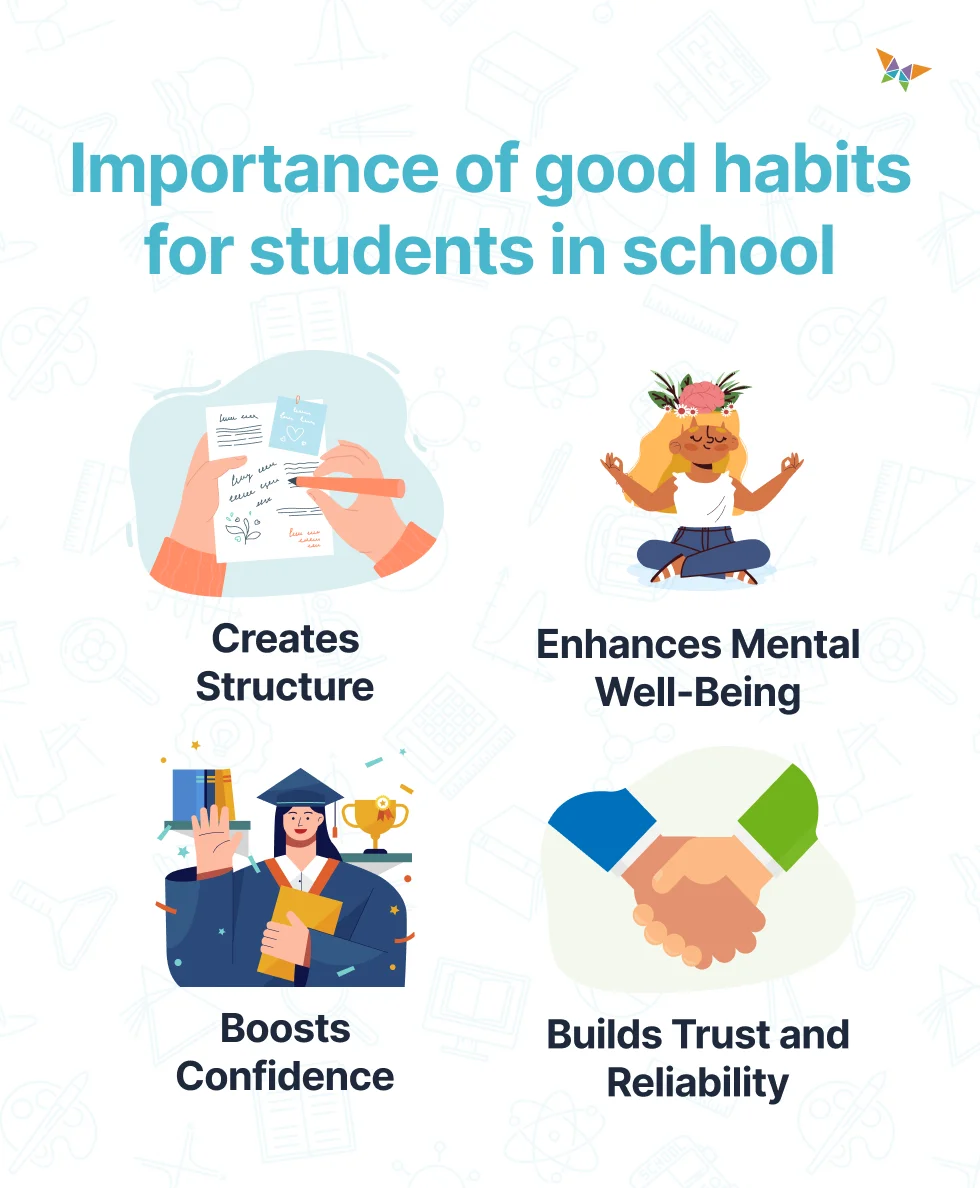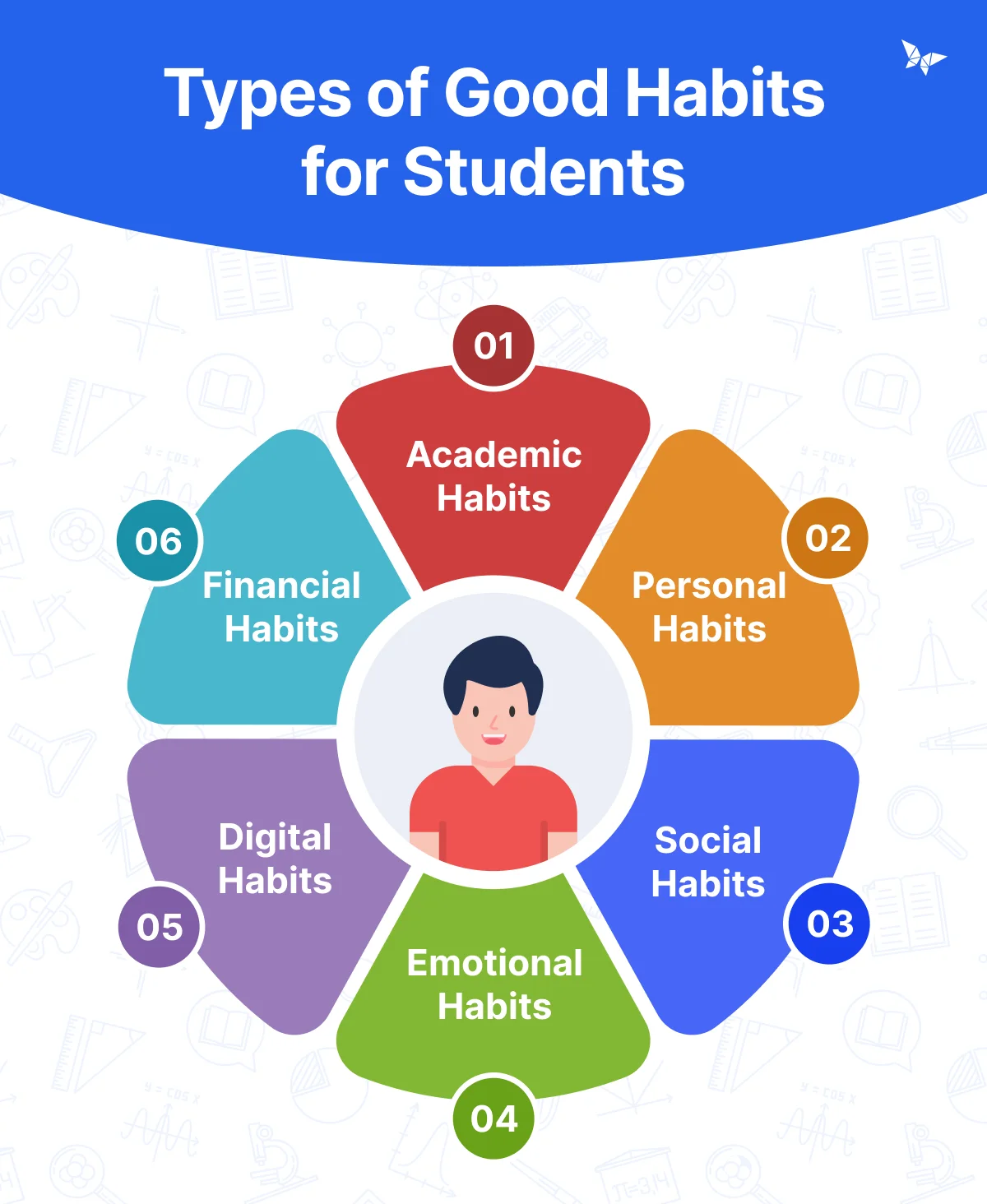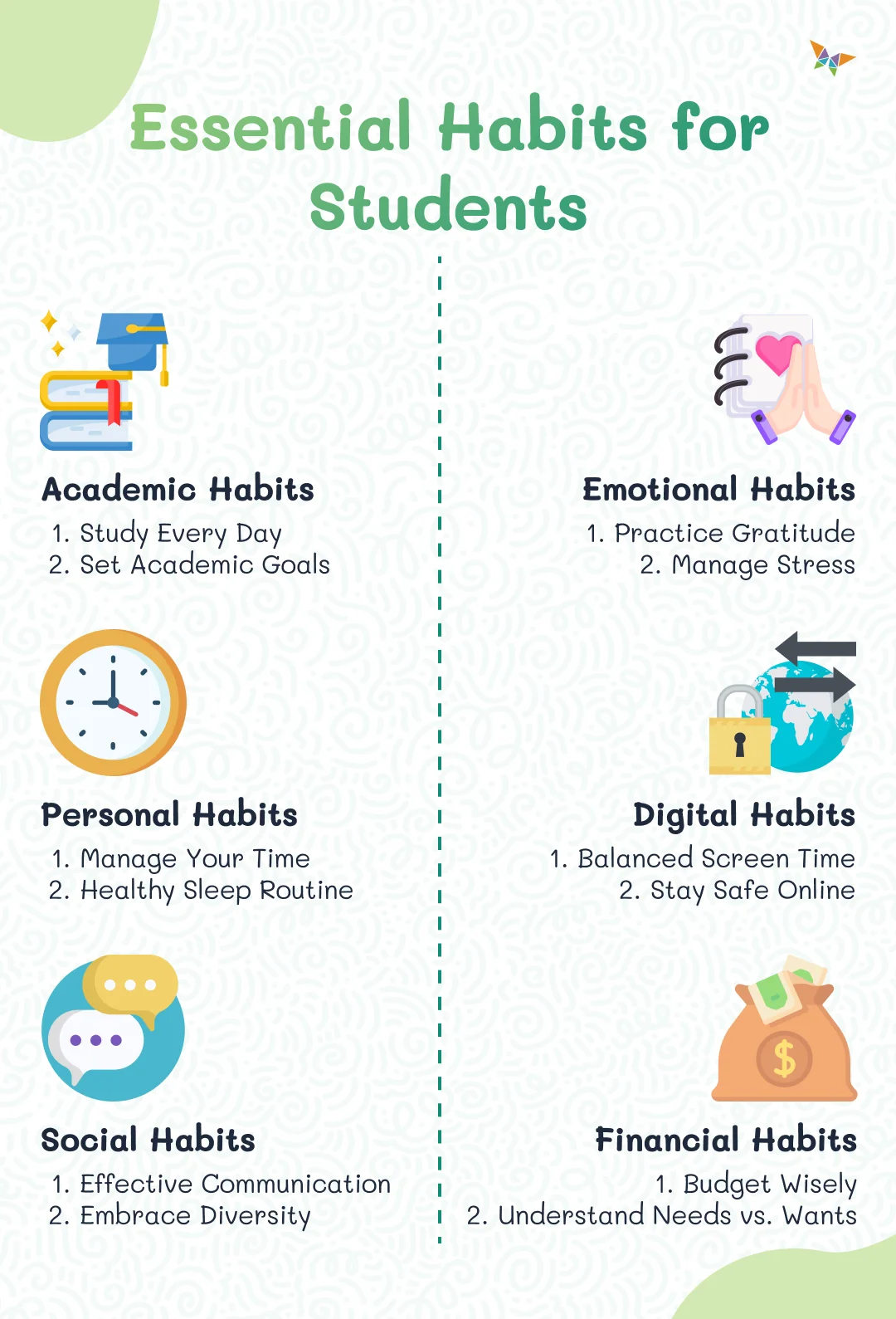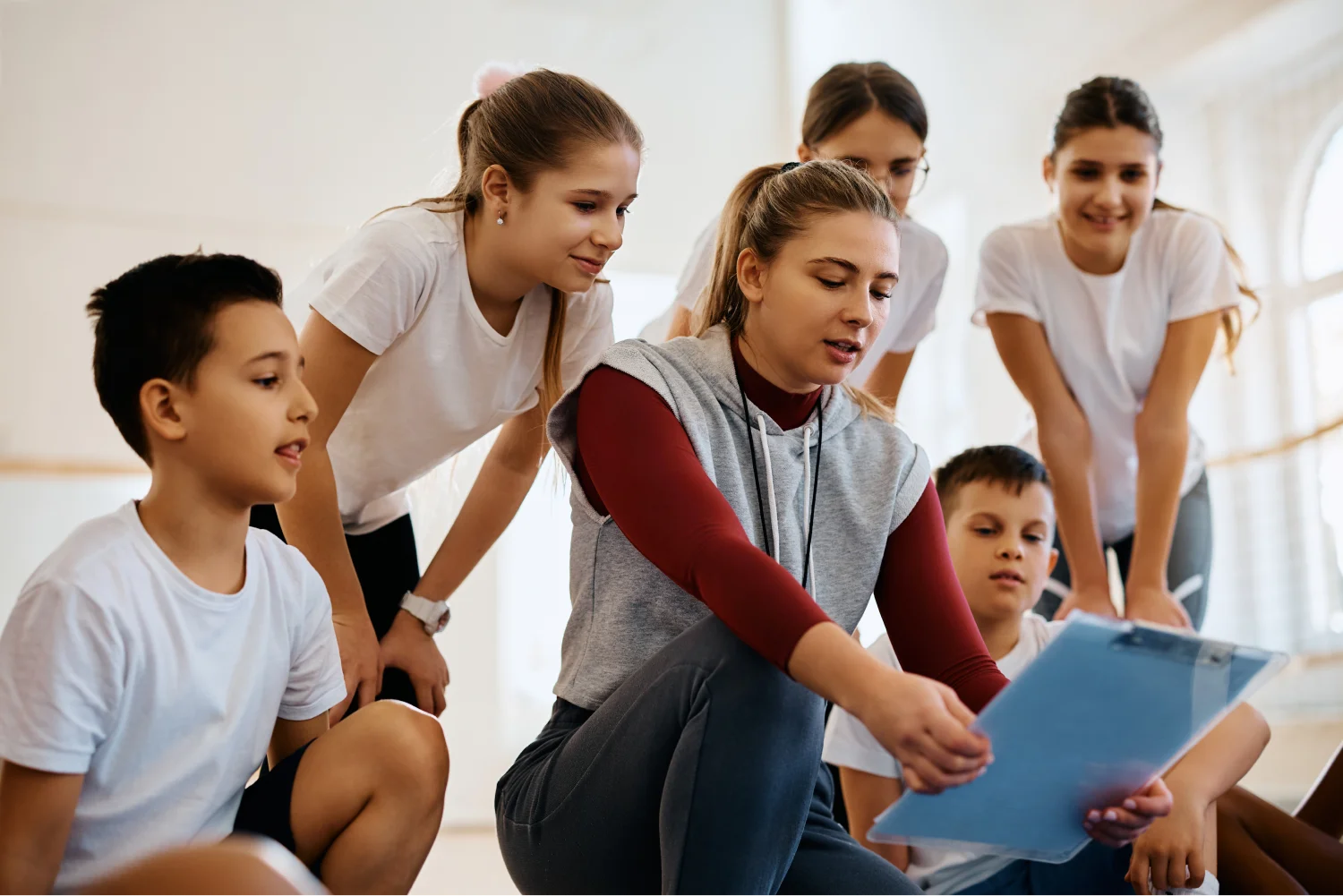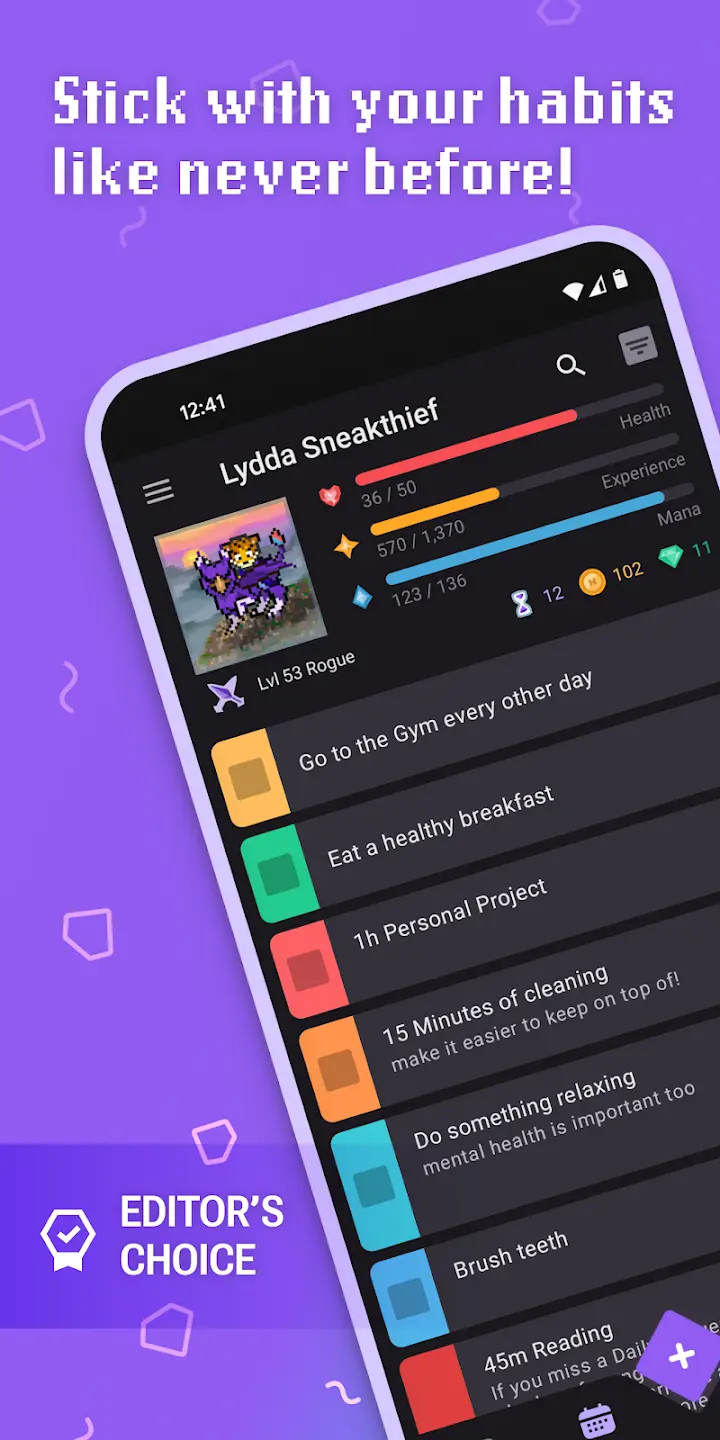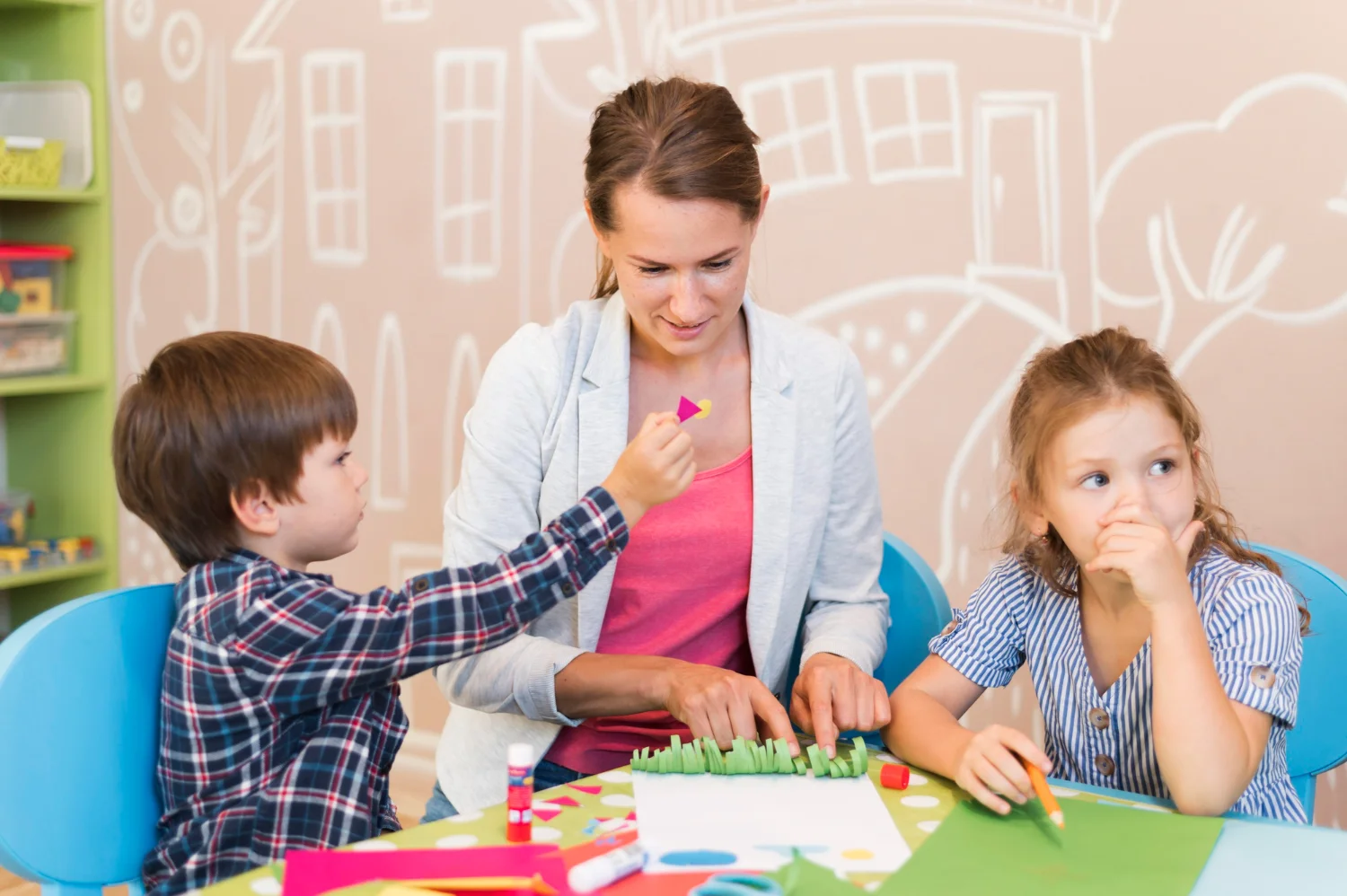“Good habits formed in youth make all the difference.” This timeless quote by Aristotle reminds us of the profound impact early habits can have on a person’s life.
As educators, you're not just teaching subjects; you're shaping the future by instilling good habits for students that will guide them long after they leave your classroom.
Even, Research supports this. Studies show that students who develop strong, positive habits early on are more likely to succeed academically and socially.
These habits, whether they involve academic discipline, emotional resilience, or social interaction, become the building blocks of their future success.
In this blog, we’ll explore 30 good habits for students that go beyond academics—they’re about nurturing well-rounded, confident, and capable individuals.
Table of Contents:
- Why Are Good Habits So Important?
- Types of Good Habits for Students
- 30 Essential Habits for Students
- Implementing Good Habits for Students
- Tools and Resources for Developing Good Habits for Students
- What Are Some Good Habits Quotes for Students?
- Bonus: How to Help Students Break Bad Habits
Together, let’s discover how these small, consistent habits can lead to big changes in your students' lives and help them build a foundation for lifelong success.
In a world that’s constantly moving at breakneck speed, good habits act like a guiding compass, helping students navigate daily challenges with ease.
They’re the routines that keep them grounded and give them the structure they need to thrive. Let’s dive into why cultivating good habits is so crucial:
1. Creates Structure
Good habits for students bring a sense of order to their lives. Amid the hustle of schoolwork, extracurricular activities, and hanging out with friends, these habits can offer stability and make daily routines feel way more manageable.
2. Enhances Mental Well-Being
Students who stick to positive habits often experience better mental health. Consistent routines can reduce feelings of anxiety and stress, providing a protective shield against the pressures of growing up.
3. Boosts Confidence
When students keep up with their habits, it’s like a little win every day that builds up their confidence. They start to believe in themselves more and feel ready to take on whatever challenges come their way..
4. Builds Trust and Reliability
Habits like being on time, taking responsibility, and staying consistent help students earn a reputation as someone others can count on. And let’s be real, that kind of trust is golden—not just in school, but everywhere.
Now let’s explore the types of good habits for students.
Understanding and developing good habits for students can play a pivotal role in their journey to success.
These habits can be divided into six key categories, each addressing different aspects of a student’s life. Let’s explore these categories and what they entail:
1. Academic Habits
Academic habits are the strategies and routines that help students excel in their studies. They form the backbone of a student’s learning experience, ensuring they stay organized, focused, and productive.
2. Personal Habits
Personal habits focus on self-discipline and responsibility, helping students manage their lives outside the classroom. These habits are crucial for building character and independence.
3. Social Habits
Social habits are all about building strong connections and communication skills. These habits help students get along with others and handle social situations with ease.
4. Emotional Habits
Emotional habits are about managing stress and emotions in a healthy way. These habits support mental well-being and help students handle life’s challenges.
5. Digital Habits
Digital habits center on using technology and social media wisely. These habits guide students in navigating the digital world safely, balancing screen time, and making the most of online resources for learning and personal growth.
6. Financial Habits
Financial habits introduce students to the basics of managing money wisely, like budgeting, saving, and understanding the difference between needs and wants. These habits lay the groundwork for financial responsibility, helping students make smart decisions now and in the future.
Fostering these essential habits helps students build a strong foundation for success and well-being.
By integrating academic, personal, social, emotional, digital, and financial habits into their daily routines, students can achieve both academic excellence and personal growth.
As teachers, guiding students in developing these habits can significantly impact their future success and happiness.
Now, let's dive into 30 specific good habits that can transform your students' lives.
Building good habits for students is like creating a superpower that they carry with them throughout their lives. Imagine students not just doing well in school but thriving in every part of their lives—academically, socially, emotionally, and even financially.
These essential habits go beyond just getting good grades; they shape students into confident, capable, and well-rounded individuals who are ready to take on the world.
Let’s dive into how these 30 good habits for students can turn their everyday routines into powerful tools for success!
In this section, we'll explore 30 good habits for students in school that can help them thrive academically, personally, socially, emotionally, digitally, and financially. Each habit is a small step toward creating a brighter, more successful future.
📚Academic Habits:
1. Stick to a Study Schedule: Students should set specific times each day for studying to stay on top of their assignments and avoid last-minute stress.
2. Prioritize Tasks: It is important for students to focus on the most important tasks first to manage their workload effectively.
3. Take Active Notes: Students should use summarizing and highlighting techniques to improve their understanding and retention of the material.
4. Set Clear Academic Goals: Setting specific goals helps students stay motivated and track their progress in their studies.
5. Ask for Help When Needed: Students should reach out to teachers or classmates if they need clarification or assistance with difficult topics.
🗓️Personal Habits:
6. Manage Time Effectively: Students should use planners or apps to organize their daily activities and balance schoolwork with other responsibilities.
7. Maintain a Healthy Sleep Routine: It is important for students to go to bed and wake up at the same time each day to get enough rest and stay focused.
8. Include Physical Activity: Students should make time for regular exercise to boost their health and concentration.
9. Practice Mindfulness: Engaging in mindfulness techniques like meditation can help students manage stress and stay calm.
10. Reflect on Personal Progress: Students should regularly think about their strengths and areas for improvement to encourage personal growth.
🤝Social Habits:
11. Communicate Clearly: Students should practice clear and respectful communication to build strong relationships and work effectively with others.
12. Show Empathy and Listen Actively: It is important for students to understand others' feelings and listen carefully to strengthen their friendships.
13. Work Well in Teams: Students should collaborate and share ideas to achieve common goals and build teamwork skills.
14. Resolve Conflicts Calmly: Students should address disagreements in a calm manner and work towards solutions that everyone can agree on.
15. Respect Differences: Appreciating and accepting diversity among peers helps create an inclusive and positive environment.
🧘Emotional Habits:
16. Manage Stress: Students should use techniques like deep breathing or exercise to handle stress and maintain emotional balance.
17. Use Positive Self-Talk: It is important for students to encourage themselves with positive thoughts to boost confidence and motivation.
18. Regulate Emotions: Students should learn to manage their emotions in a healthy way to maintain their overall well-being.
19. Build Resilience: Developing the ability to bounce back from setbacks helps students stay focused on their long-term goals.
20. Practice Gratitude: Regularly acknowledging and appreciating the good things in their lives can enhance students' overall happiness.
💻Digital Habits:
21. Limit Screen Time: Students should balance their online activities with offline ones to maintain a healthy lifestyle. Teachers can help by setting clear guidelines on-screen use and encouraging breaks during digital lessons.
22. Follow Safe Online Practices: It’s important for students to use strong passwords and privacy settings to protect their personal information. Teachers can educate them on cybersecurity basics and the importance of digital privacy.
23. Evaluate Digital Content: Students should check the credibility of online information before believing or sharing it to avoid misinformation. Teachers can encourage parents to discuss with their children how to identify reliable sources and critically assess the content they find online.
24. Set Digital Boundaries: Students should establish limits on their online activities to stay focused and reduce distractions. Teachers can support this by helping students create and stick to a digital routine that balances study and leisure.
25. Organize Online Learning Materials: Keeping digital study materials and assignments well-organized improves their online learning experience. Teachers can assist by showing students how to categorize and store files efficiently for easy access.
💸Financial Habits:
26. Create a Budget: Students should plan how to manage school-related expenses to avoid overspending. Teachers can collaborate with parents to introduce budgeting exercises, helping students practice smart financial planning.
27. Save Part of Allowance: Students should set aside a portion of their allowance or earnings to build savings. Educators can encourage parents to reinforce this habit at home by discussing savings goals with their children.
28. Distinguish Needs from Wants: Students should learn to differentiate between essential needs and non-essential wants to make smarter spending choices. Teachers can work to provide examples and exercises that make this concept more relatable.
29. Track Spending: Keeping track of their expenses helps students stay within their budget and make necessary adjustments. Involving parents in this habit by reviewing spending can enhance its effectiveness.
30. Learn Financial Basics: Understanding basic money management principles supports students in making wise financial decisions. Teachers and parents should jointly provide resources and discussions on financial literacy to build a strong foundation for students.
Now that you've discovered these 30 essential habits, let's explore how to effectively implement them.
Building habits takes time and effort, and it’s important for students to approach this process with patience. Here are some practical strategies for students to adopt and maintain good habits:
- Start with Small Steps: Begin with small, achievable goals. For example, if students want to build a reading habit, starting with just 10 minutes a day makes it easier to get started and stick with it.
- Establish a Routine: Consistency is key. Students should pick a specific time each day to work on their new habits, helping to make it a regular part of their daily routine.
- Encourage Perseverance: Developing new habits can be challenging. Students should remember that it’s normal to face obstacles and that persistence is essential. Over time, their new habits will become a natural part of their lives.
- Use Reminders: Setting reminders or using habit-tracking apps can help students stay on track. Visual cues, like sticky notes in visible places, can also serve as helpful prompts.
Supporting students in developing good habits involves guidance and encouragement from teachers and caregivers.
Here’s how you can help:
- Provide Guidance and Support: Offer clear advice on which habits are beneficial and help students set realistic goals. Assist them in creating a structured plan to achieve these goals.
- Encourage Consistency: Consistently support students in sticking with their new habits, even when it’s tough. Positive reinforcement and encouragement can play a crucial role in maintaining their motivation.
- Model Good Habits: Lead by example. When teachers and caregivers practice good habits themselves, it provides a powerful model for students to follow.
- Offer Constructive Feedback: Provide regular, constructive feedback on students’ progress. This helps them understand what they’re doing well and where they can improve, keeping them focused on their goals.
- Create a Supportive Environment: Ensure that students have the resources they need and foster a positive, supportive environment both at home and in school. This helps create a foundation for developing and maintaining good habits.
Building good habits for students is a journey that requires time and dedication, both from students and those supporting them.
By starting with small, manageable steps and maintaining consistency, students can develop habits that set them up for long-term success.
Teachers and caregivers play a crucial role by offering guidance, encouragement, and a supportive environment. Together, these efforts help students establish and maintain habits that contribute to their overall growth and achievement.
Now let’s explore the tools and resources you can use to develop good habits for students.
Developing and maintaining good habits for students can be greatly supported by using various tools and resources. Here’s how apps, books, and interactive programs can assist in building and reinforcing positive habits:
Apps and Digital Tools
In today’s tech-savvy world, there are numerous apps and digital tools designed to help students develop and track good habits. Here are some recommendations:
1. Habitica: This app turns habit-building into a fun, game-like experience. Students can create avatars, earn rewards, and track their progress in a visually engaging way.
2. Forest: Ideal for managing screen time and staying focused, Forest allows students to grow a virtual tree as they stay off their phones. It’s a unique way to encourage concentration and productivity.
3. Todoist: This task management app helps students keep track of their assignments, goals, and daily routines. It’s perfect for organizing tasks and setting reminders.
4. MyFitnessPal: For developing healthy habits, such as tracking nutrition and exercise, MyFitnessPal is a useful tool. It helps students monitor their diet and physical activity.
5. Headspace: This app provides guided meditation and mindfulness exercises. It’s an excellent resource for managing stress and building emotional resilience.
Books
Books can offer valuable insights and motivation for developing good habits for students. Here are some must-reads:
1. "Atomic Habits" by James Clear: This book provides practical strategies for forming good habits and breaking bad ones. It’s a great guide for understanding the science behind habit formation.
2. "The 7 Habits of Highly Effective People" by Stephen R. Covey: A classic book on personal development, it covers fundamental habits that contribute to effectiveness and success.
3. "Mindset: The New Psychology of Success" by Carol S. Dweck: This book explores the power of mindset and how adopting a growth mindset can lead to personal and academic success.
4. "How to Win Friends and Influence People" by Dale Carnegie: A timeless resource for improving social skills and building positive relationships.
5. "The Power of Now" by Eckhart Tolle: Focused on mindfulness and living in the present moment, this book helps students manage stress and enhance emotional well-being.
6. "The Alchemist" by Paulo Coelho: A compelling tale of self-discovery and following one’s dreams, this book inspires one to pursue their passions with perseverance and confidence.
Workshops and Courses
Interactive programs provide hands-on learning experiences to cultivate essential habits. Here are some options:
1. Time Management Workshops: These workshops teach students how to effectively manage their time, set priorities, and organize their tasks. Look for local community centers or online platforms offering these workshops.
2. Mindfulness and Stress Management Courses: Many schools and organizations offer courses on mindfulness and stress management. These programs help students and teachers develop emotional resilience and coping strategies.
3. Leadership and Personal Development Seminars: These seminars focus on building leadership skills, self-discipline, and personal growth. They provide valuable tools and insights for students seeking to enhance their personal and academic lives.
4. Health and Wellness Workshops: These workshops cover topics related to physical health, nutrition, and overall well-being. They are great for students looking to establish healthy routines and habits.
Leveraging the right tools and resources can make a big difference in helping students develop and maintain good habits. Apps offer convenient tracking and motivation, books provide in-depth insights and strategies, and workshops or courses deliver practical, interactive learning experiences.
By integrating these resources into students' routines, educators and caregivers can effectively support their growth and help them build habits that lead to long-term success.
Let’s look at some powerful and motivational good habits quotes for students.
Quotes can be powerful motivators, especially when it comes to building good habits for students. They serve as reminders of the importance of consistency, perseverance, and dedication.
Here are some inspiring good habits quotes for students that can encourage them to develop and maintain good habits:
1. “The journey of a thousand miles begins with one step.” – Lao Tzu
This quote emphasizes the importance of taking that first step, no matter how small, towards building good habits. It's a reminder that all progress begins with a single action.
2. “We are what we repeatedly do. Excellence, then, is not an act, but a habit.” – Aristotle
Aristotle’s words highlight the power of habits in shaping who we are. For students, this quote underscores that consistent effort and good habits are key to achieving excellence.
3. “Motivation is what gets you started. Habit is what keeps you going.” – Jim Ryun
This quote by the Olympian Jim Ryun reminds students that while motivation is important, it's the habits they develop that will sustain their progress in the long run.
4. “Success is the sum of small efforts, repeated day in and day out.” – Robert Collier
This quote encourages students to focus on the small, consistent efforts that add up over time and lead to success.
5. “Good habits formed at youth make all the difference.” – Aristotle
Another timeless piece of wisdom from Aristotle, this quote highlights the lasting impact of developing good habits early in life.
6. “Your habits will determine your future.” – Jack Canfield
Jack Canfield’s words serve as a powerful reminder that the habits students form today will shape their future successes and achievements.
Ready to see these quotes come to life in your students? Suraasa can provide the support you need. Talk to a mentor today and start building the habits that will lead your students to success.
Good habits are the foundation of a successful future. They shape how students approach their studies, relationships, and personal growth, guiding them toward becoming well-rounded individuals.
By encouraging the development of good habits in school, educators and parents can set students up for long-term success. Whether it's following a study routine, practicing mindfulness, or maintaining a balanced lifestyle, these habits are crucial.
Key strategies include starting small and staying consistent. For example, you might start by helping build 10 good habits for students, like regular study times and healthy eating.
Over time, these small steps can lead to significant improvements in both academic and personal areas.
In the end, whether you're helping a student build 15 good habits for students in school or discussing the importance of good habits for college students, the impact of these practices will last a lifetime.







